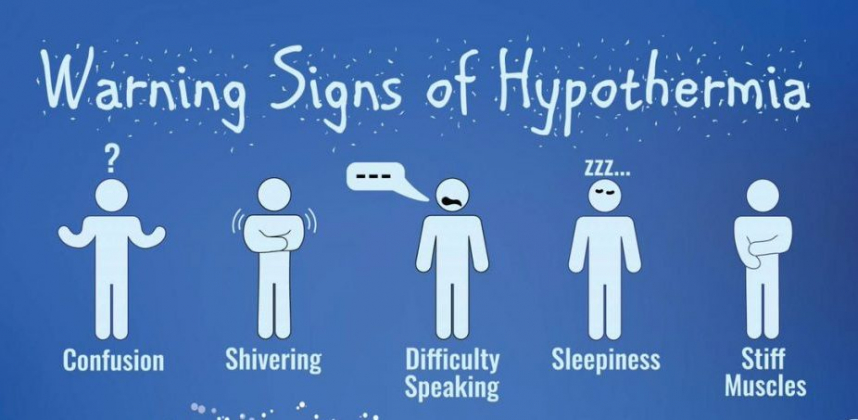
Hypothermia is a state of health and the body in which seafarers are quite vulnerable, as, due to ship sailing, they are exposed to low temperatures.
Hypothermia occurs when the human body loses heat faster than it can produce it, causing the body temperature to drop below 35°C.
Hypothermia is a very serious condition of the body and can lead to hospitalization or even death in severe cases.
The most common causes leading to hypothermia are a poor or inappropriate use of clothing for cold weather and wet clothing.
Also, alcohol consumption and drug use, as well as a large exposed wound in the body, lead to faster cooling of the blood and contribute to hypothermia of the body.
Common symptoms of hypothermia include severe tremors in the hands or body, fatigue, confusion, and memory loss. Many of the above symptoms also occur in other conditions, so the circumstances should be properly assessed, such as the length of time that the person has been exposed to a cold or if another accident has occurred.
In order to properly treat the incident, the person must first be transported to a suitable place and receive the necessary medical care.
If the person is conscious, remove any wet clothing and wrap the person in a thermal blanket or other protective clothing (Thermal Protective Aid).
We can cover the head, but we must leave the face free to keep breathing.
If the person is unconscious, then their breathing should be assessed. If the person is not breathing, then the CARPA (Cardiopulmonary Resuscitation) procedure should be started, in parallel with the body reheating process.
To effectively prevent hypothermia, seafarers should always have the appropriate protective equipment (isothermal work uniforms, gloves, and hats) and to avoid prolonged exposure to cold environments is not considered necessary.
Finally, in case of abandonment of the ship, the seafarers should wear immersion suits, for their effective protection from the cold seawater.